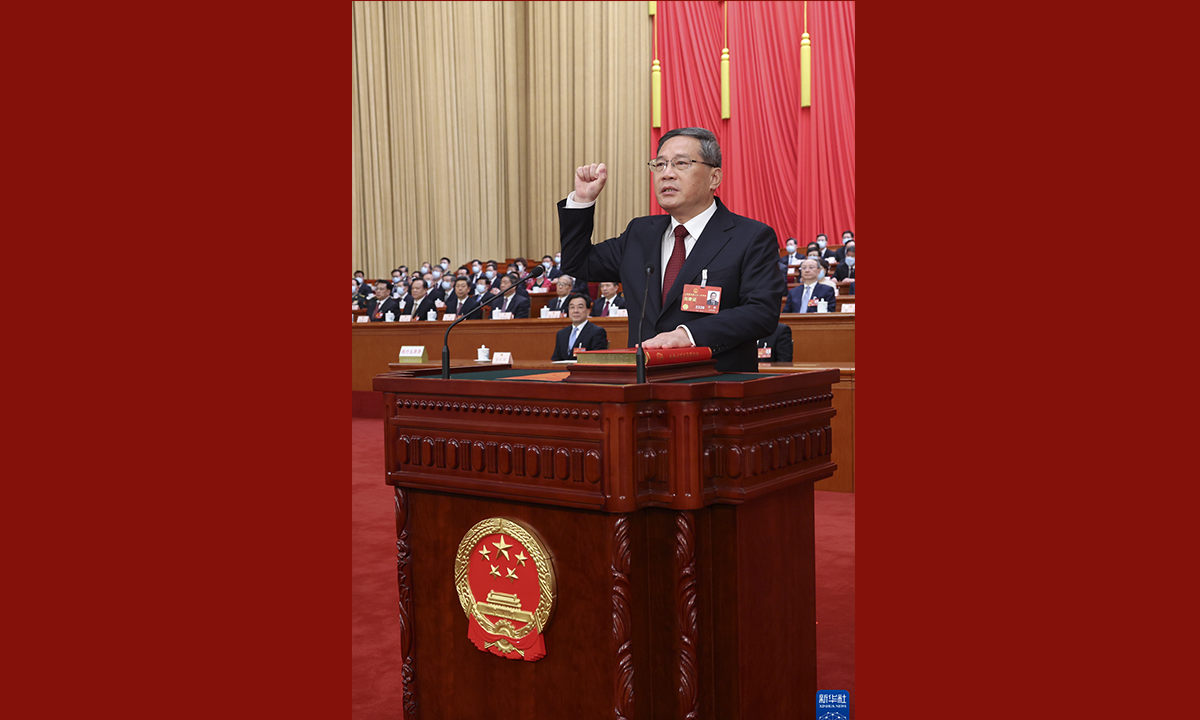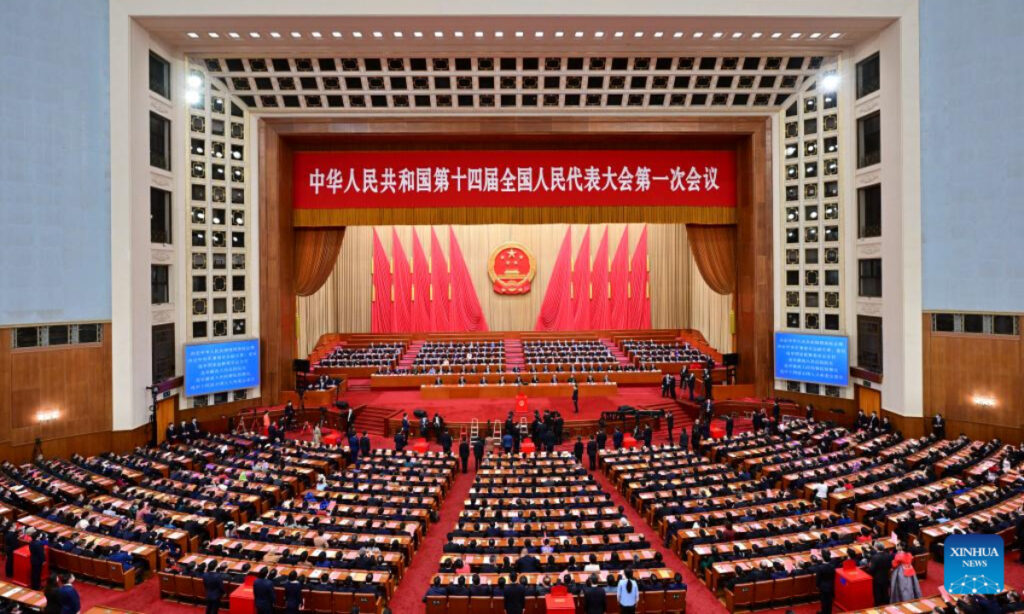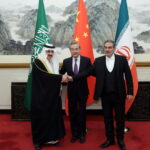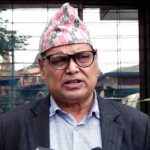Chinese President Xi Jinping signed a presidential order appointing Li Qiang as premier on Saturday morning at the first session of the 14th National People’s Congress (NPC), China’s national legislature.
At the NPC session on Saturday, Liu Jinguo was elected director of the National Commission of Supervision, Zhang Jun was elected president of the Supreme People’s Court, and Ying Yong was elected procurator-general of the Supreme People’s Procuratorate.
They all made a public pledge of allegiance to the Constitution at the Great Hall of the People in Beijing.

Newly appointed Chinese Premier Li Qiang makes a public pledge of allegiance to the Constitution at the Great Hall of the People in Beijing, capital of China, March 11, 2023. Li was endorsed as Chinese premier at a plenary meeting of the first session of the 14th National People’s Congress, the country’s national legislature. Photo:Xinhua
Key tasks
Li Qiang, born in 1959, joined the CPC in April 1983 and became a member of the Standing Committee of the Political Bureau of the Communist Party of China Central Committee in October 2022.
Li Qiang’s appointment as the Chinese premier came following the approval of a plan on reforming the institutions of the State Council on Friday. NPC deputies and CPPCC National Committee members said at the two sessions that on the back of the institution reform, China would gradually establish a more unified, open market system based on orderly competition, laying the institutional foundation for the country’s ongoing push to build a unified national market, which is deemed key in accelerating the dual circulation development pattern.
It also marks the ninth round of State Council institutions’ reform since the reform and opening-up. The reform plan emphasizes various important areas, such as science and technology, financial supervision, data management, rural revitalization, intellectual property rights, and aged care.
Observers stressed that the reform represents an important step in enhancing the capacity and efficiency of governance amid China’s modernization drive, rebutting what some Western media have hyped as “a tightened government grip” over the market.
Chinese observers believed that the major agenda of the new Chinese central government will be steering the economy recovery and boosting market confidence, and the Chinese public hold high expectation for the new leadership to accomplish these important tasks and lead the country on a new journey in unity and confidence.
Xue Lan, a professor and former dean at the School of Public Policy and Management of Tsinghua University in Beijing, told the Global Times on Saturday that the primary task for the new central government is to boost the public confidence and lift the economy, given the global as well as domestic economy have been significantly affected by the pandemic in the past three years.
Reform in the financial sector which is highlighted in the reform plan is indicative of wider change to State Council institutions and shows that China will further advance its national governance capability into modernization, Xue noted.
Sci-tech innovation lies at the heart of China’s modernization drive and must be supported by a sound system of governance, Xue added.
In the face of international sci-tech competition and external containment and suppression, analysts stressed that it has become even more urgent for the country to straighten out its sci-tech leadership and administration system, so as to better coordinate forces to make breakthroughs in core technologies and accelerate the realization of greater self-reliance and strength in the field.
Chinese analysts also predicted the new central government will also increase efforts to boost the development in industry sectors that hold significant potential such as the digital economy and new energy, and explore how to better integrate manufacturing in these sectors.
The Chinese public are expecting that under new government leadership, a rapid and steady economy recovery will form the basis for China’s development and improvement of people’s livelihood, leading the country on a new journey characterized by more democracy, vitality and confidence.
(Global Times)




